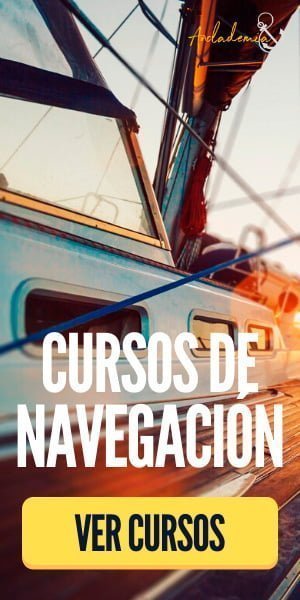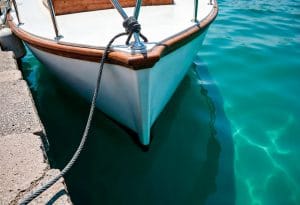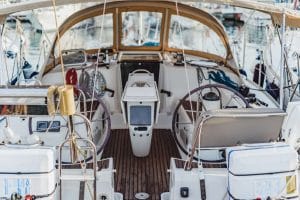On many occasions, once the GNP We realize that their attributions are scarce for our needs or we enjoy browsing so much that we need a more extensive title. What to do at that point? The Complementary PER is the solution.
What is the Complementary PER?
The Supplementary PER is the bridge course that you must take to go from Basic Navigation Skipper to Recreational Boat SkipperWith this training, the necessary knowledge is acquired to get the PER after taking the official exam.
Converting from GNP to PER
Among the advantages of the PER are the ability to govern ships with largest length (from the 8 meters allowed by the GNP to the 15 of the PER) already a upper distance from the coast (While with the PNB you can sail a maximum of 5 miles from the coastline, this distance increases to 12 miles with the PER).
If you already have the GNP and you are determined to obtain the PER, there are certain Circumstances that you must take into account when carrying out the Complementary PER, especially with regard to the mistakes allowed in the exam, the syllabus you must prepare and the mandatory practices you will have to do.
Less Syllabus
One of the main advantages of doing the complementary PER is that you will not have to prepare the entire syllabus again: the First 6 themes are common to GNP and PER, so they are considered approved once you have obtained the title of Basic Navigation Skipper.
To access the Complementary PER You must prepare the following topics:
- Maneuvers and navigation
- Emergencies at sea
- Meteorology
- Theory of navigation
- Chart
Allowed failures
The complementary PER exam only consists of 18 questions, those corresponding to the part of the syllabus not common between both titles. However, the number of allowed failures is reduced Likewise, from the 9 authorized in the complete exam to the 3 that are allowed in the Complementary PER.

Mandatory Practices
Both titles require certain mandatory practices, radio operator and navigation, although the number of hours varies significantly between one and the other:
- 4 hours of Radio practices in a simulator for the GNP, which rise to 8 in the case of the PER.
- 8 hours of sailing practices on a boat for the GNP, which becomes 16 in the PER.
Therefore, to go from PNB to PER it is necessary to complete the necessary hours of practice until completing those provided for by the degree.
Requirements to obtain the complementary PER title
There are three ways to access the bridge course of the PER or complementary PER:
- Have obtained the GNP.
- Having passed the PNB but not having completed the internship corresponding.
- Having passed the part of the exam corresponding to the common subject between both titles.
In it first case You will be able to take the bridge course in Any autonomous region that has the necessary powers necessary, but in any of the two others You must keep in mind that you will have to carry out the exam in the same Administration in which you took the first exam.
As regards the practical part, it is necessary that you carry out the all the practices required for the Recreational Boat Skipper qualification, regardless of those you have previously carried out. Specifically, you must carry out:
- 16 hours of practice Safety and navigation.
- 12 hours of short range radio course (replacing old radio practices)
In addition, if you want, you can do the sailing qualification practices (although, if you have already done them with the PNB, the same ones will be valid) and the navigation practices to govern boats up to 24 meters in length. Once you have the exam passed and compulsory practices completed, you can request the GNP title.




